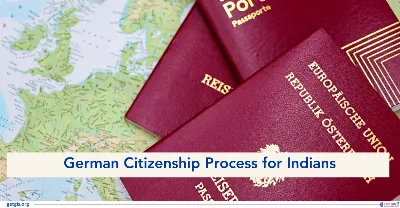How PSW and ECE Programs Lead to Permanent Residency in Canada?
Updated On
-
Copy link
Learn how PSW and ECE programs in Canada can lead to PR in 2025-26. Explore step by step process, immigration requirements and more in this comprehensive blog
Limited-time offer : Access a free 10-Day IELTS study plan curated for you

Table of Contents
Strong and stable Canada economy, coupled with diverse immigration pathways and inclusive societies makes it a top destination for individuals seeking better life and PR. Particularly short term courses like Personal Support Worker (PSW) and Early Childhood Educators (ECE) are popular, however, completing a course is just the beginning of your journey to securing PR.
Considering the growing demand for healthcare and childcare professionals PSW and ECE roles have been gaining priority under various permanent residency (PR) pathways. Explore the blog to learn how by combining education, work experience, and strategic planning you can unlock a successful PR application process.
Why PSW and ECE Pathways Are in High Demand?
With an ageing population and expanding childcare needs, Canada is facing acute shortage in both healthcare and early learning sectors.
- Statistics Canada estimates that by 2030 over 25% of Canadians would be 65+ which creates a significant demand for PSWs in long term care and home settings.
- Similarly, the growing Childcare sector, urban cities like Toronto and Vancouver are rapidly expanding ECE programs, creating a surge in demand for qualified Early Childhood Educator Assistants.
The key advantages of PSW and ECE training for Canada PR aspirants include:
- These are short duration programs, often completed in 6 months or less, ideal for those on work permit.
- These programs are cost effective and might be a fraction of the cost of multi year degrees
- Both the job roles Personal Support Worker (PSW) NOC 33102 or 44101 & Early Childhood Educators NOC 42202 are prioritised pathways for multiple federal and provincial immigration streams.
How to Immigrate to Canada Under PSW or ECE Pathways?
Is it worth moving to Canada from India? Certainly yes. Canada offers a multitude of benefits for students, working professionals and families, to boost their professionals and quality of life. Moving further we have list the step by step immigration process to Canada for PSW and ECE pathways is mentioned below:
Step 1: Select an Accredited PSW or ECE Program
PSW courses prepare you to care for senior people with disabilities and chronically ill in hospitals, nursing homes or private residences.
- These programs are generally of the duration of 6 months or below and would not require any study permit as per latest IRCC guideline. The options to study online or hybrid are also available making it ideal for candidates on work permit in Canada.
- PSW graduates gain skills by working as nurse aides (NOC 33102) or Home Support Worker (NOC 44101)
- PSW credentials and experience aligns with Express Entry program, Home Care Worker Immigration Pilots, and Provincial Nominee Program (PNP).
Early Childhood Educator Assistance (ECEA) programs equip you to support children in daycare, preschools, and home settings.
- These programs are generally of the duration of 6 months and are an ideal option for quick entry into the workforce.
- Graduates can pursue full ECE licensure, significantly enhancing job prospects and PR eligibility.
- ECEAs are in high demand in provinces like British Columbia, offering dedicated PNP pathways.
#Ensure to research programs accredited by provincial authorities, as some immigration streams (like British Columbia’s Skills Immigration) might require specific credentials.
Step 2: Gain Qualifying Work Experience
Completing the course alone does not secure you prominent residency in Canada. Applicants are required to work in a matching NOC and also log sufficient working hours.
|
Applicants |
NOC Codes |
Experience Requirements |
|
For PSW Graduates |
Nurse Aides, Orderlies, Patient Service Associates (33102) Home Support Workers, Caregivers (44101) |
|
|
For ECE Graduates |
Early Childhood Educators & Assistants (42202) |
|
#Ensure to keep all records and documents handy like reference letters, pay slips, and detailed job description, etc as they are crucial proof for IRCC for your PR application
Also Read: How To Become a Teacher in Canada From India?
Step 3: Canada PR Pathways
Gaining PSW and ECE education and experience opens doors to multiple pathways for PR in Canada. Some of the key pathways with updates to 2025 - 2026 requirements include:
|
Pathway |
Requirements |
|
Express Entry |
The applicants under PSW and ECE qualify for the Canadian Experience Class (CEC) pathway under the Express Entry system. To gain eligibility applicants need to complete:
|
|
Home Care Worker Immigration Pilot (HCWIP) |
The Home Care Worker Immigration Pilot (HCWIP) offers 2 streams i.e. Home Child Care Provider for ECEAs and Home Support Worker for PSWs and ideal for candidates with limited work experience or low CRS score. To gain eligibility applicants need to complete:
|
|
Provincial Nominee Program (PNP) |
The PSWs and ECEAs are one of the top in demand jobs in Canada’s provinces.
|
|
Rural Community Immigration Pilot (RCIP) |
RCIP program targets smaller communities like Thunder Bay (Ontario), Brandon (Manitoba), and Timmins (Ontario), which list PSW and ECE as in demand occupations. The eligibility requirement include:
|
#Research each province’s streams and ensure to align your jon search to meet their specific criteria or requirements.
Also Read: Occupations in Demand in Canada for International Skilled Workers in 2025
Step 4: Strengthen Your Express Entry or Canada PR Profile
To stand out among the competition it is important to make your profile or application strong. You can ensure it by focusing on:
- Boost your language skills and aim for CLB 7 or higher in English and French to meet Express Entry and PNP requirements. Securing a higher score (CLB 9+) significantly increases your CRS score and Canada PR chances.
- Obtain Educational Credential Assessment (ECA) from WES to validate your foreign credentials, ensuring they meet Canadian standards for Express Entry, HCWIP, PNP.
- Secure a full time job offer as this may aid a provincial nomination and is also mandatory for HCWIP pathway. Network with potential employers through college career services or RCIP communities.
- Amin for 1-2 years extended work experience to qualify for multiple Canada PR streams
- Leverage college support for language training, job placement, and immigration guidance.
Common Myths About ECE and PSW Canada Program
While there are many myths and misconceptions circulating about PSW and ECE Canada pathways. We have addressed a few most common once for you below:
|
Myth |
Reality |
|
PSW or ECE certificate guarantees PR |
You also need work experience, sufficient language scores and meet the stream specific requirements |
|
Under 6 months courses need a study permit |
IRCC exempts all the programs equal to or below 6 months tenure, from requiring a study permit. Online or Hybrid options are also accessible |
|
PR pathways are simple and quick |
Canada PR is achievable with proper approach and strategic planning - to surpass CRS cutoff, limited pilot spots, and provincial competition. |
Need Help Choosing the Right Canada Immigration Pathways? GetGIS is all You Need
While PSW and ECE courses offer an excellent entry point into Canada's job market, they must be strategically paired with work experience and the right immigration strategy to secure PR. By staying informed, planning ahead and leveraging every resource from college career service to RNIP employers helps you succeed on your journey to permanent residency.
Need assistance with your Canada PR requirements and process from India? GetGIS has got you covered. From the visa application process, to job search assistance and post landing guidance, our team ensures your successful immigration and integration into Canada.
Also Read:
Limited-time offer : Access a free 10-Day IELTS study plan curated for you

Frequently Asked Questions
Can I get PR in Canada as a Personal Support Worker (PSW)?
Is an IELTS score of 7.5 good for Canada PR?
Who qualifies for the Canadian experience class?
What kind of work experience is needed for Express Entry?
Is IELTS required to apply for CEC in 2025?





